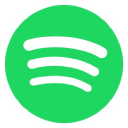How I Started A $30K/Month Personal Branding Content Service For B2B CEOs
Hello! Who are you and what business did you start?
Hey! My name is Marti Sanchez and I am the CEO of Influence Podium. We help B2B CEOs get placed on podcasts their target audience listens to and repurposes those episodes into LinkedIn or Twitter content to grow their personal brand and drive inbound.
We just crossed $30k MRR and are looking to hit seven figures by the end of the year. We’re a young company in our 3rd year in business, and completely self-funded.

What's your backstory and how did you come up with the idea?
The idea behind Influence Podium started back in college. I used to play NCAA basketball and we could only work a certain number of hours per week. As an immigrant who had just moved from Barcelona, I would “ghostwrite” my classmates’ papers for $10/page (money back if I got...

Download the report and join our email newsletter packed with business ideas and money-making opportunities, backed by real-life case studies.

Download the report and join our email newsletter packed with business ideas and money-making opportunities, backed by real-life case studies.

Download the report and join our email newsletter packed with business ideas and money-making opportunities, backed by real-life case studies.

Download the report and join our email newsletter packed with business ideas and money-making opportunities, backed by real-life case studies.

Download the report and join our email newsletter packed with business ideas and money-making opportunities, backed by real-life case studies.

Download the report and join our email newsletter packed with business ideas and money-making opportunities, backed by real-life case studies.

Download the report and join our email newsletter packed with business ideas and money-making opportunities, backed by real-life case studies.

Download the report and join our email newsletter packed with business ideas and money-making opportunities, backed by real-life case studies.





















